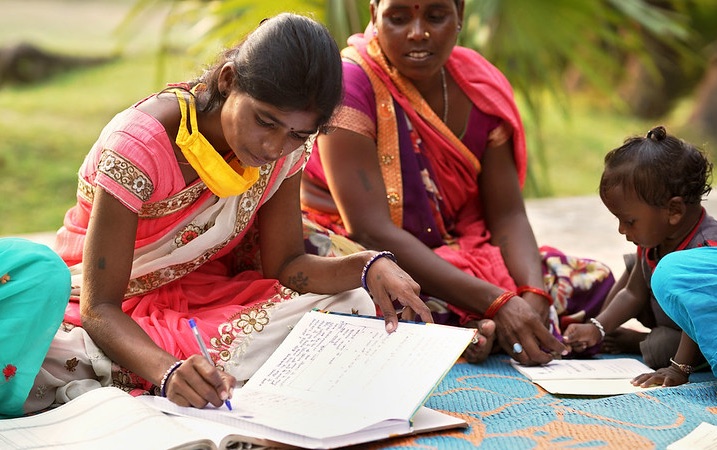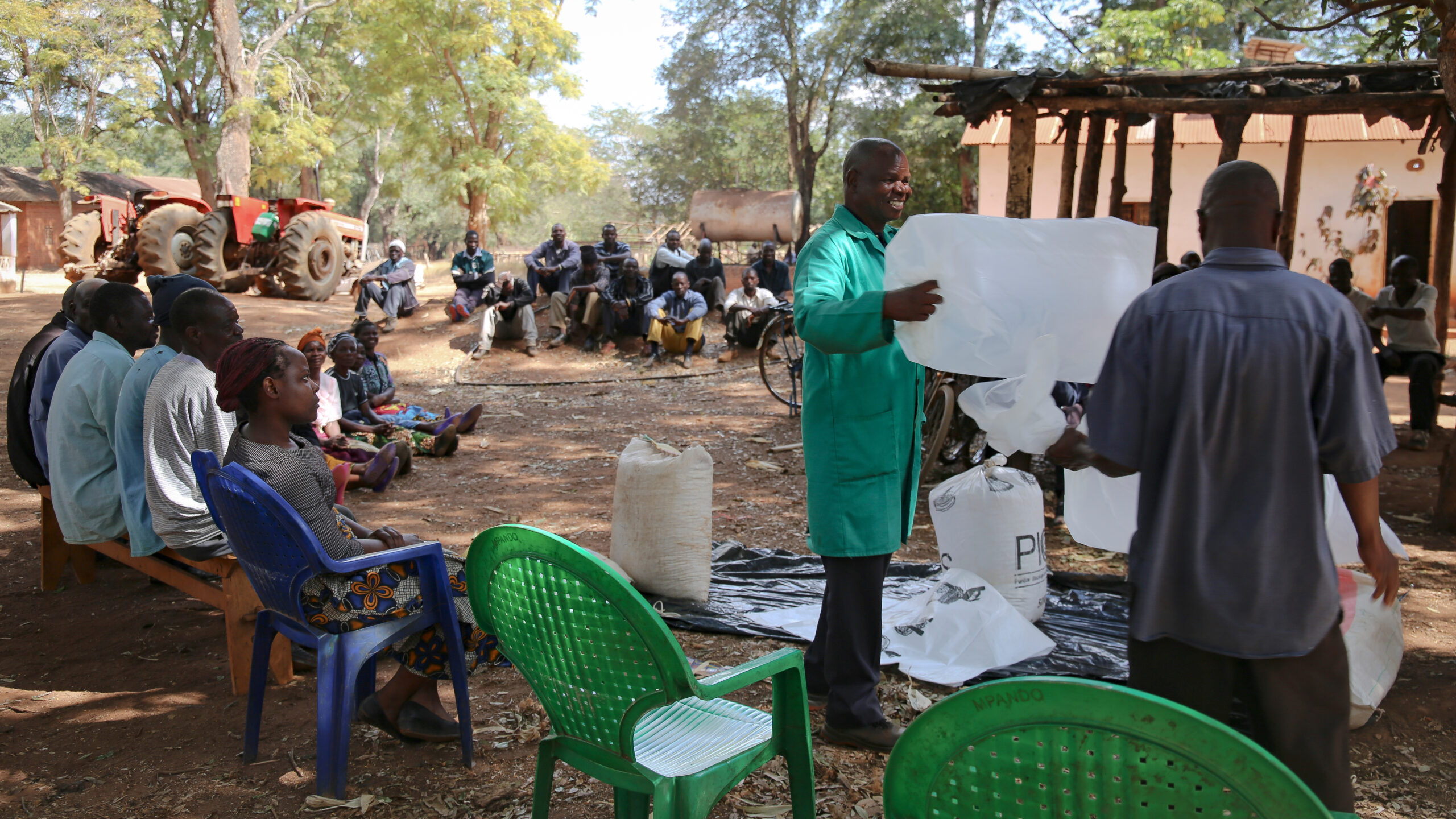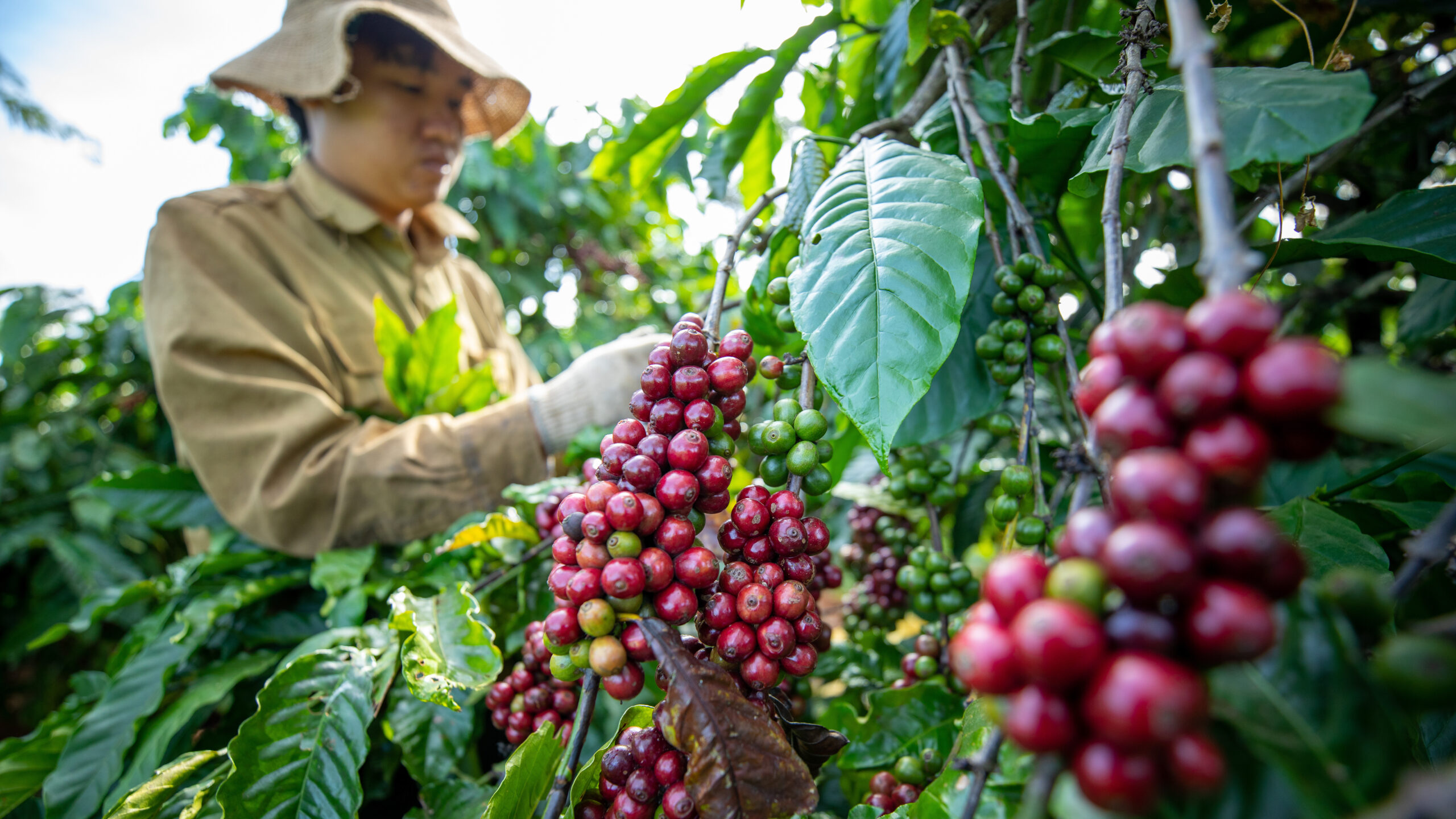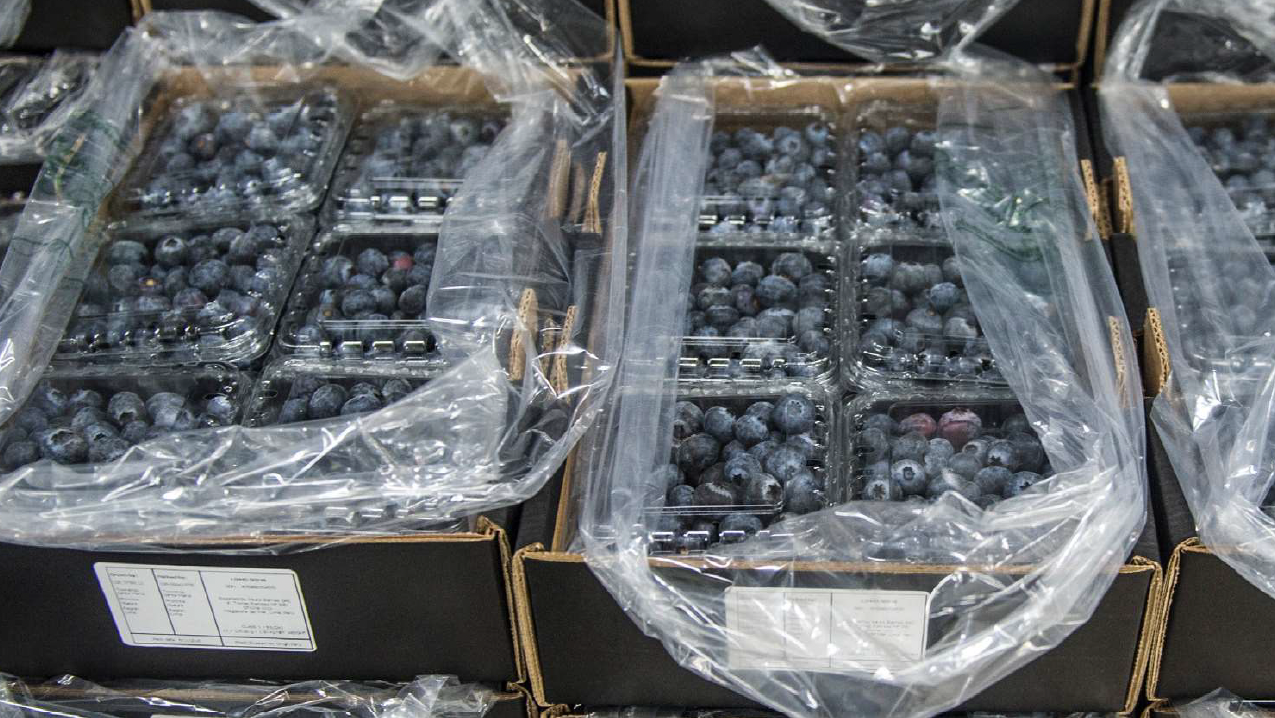Global progress on advancing women’s empowerment within governance systems has been uneven, even as recent global shocks and crises—such as the COVID-19 pandemic and rising food, fuel, and fertilizer prices triggered by Russia’s invasion of Ukraine—have had disproportionate effects on women and girls, highlighting the need for countries to formulate innovative policy solutions with a gender lens.
Some countries have adopted tools like “women’s agendas”—designated spaces for grassroots women’s groups to make policy proposals—and gender responsive budgeting, but only 26% have comprehensive systems in place to track how public budgets affect women. Women’s representation in national legislatures, meanwhile, has increased over time, but still lags behind men’s.
To better understand the roles women currently play in policymaking, IFPRI is developing the Women’s Empowerment in Agrifood Systems Governance (WEAGov), a new conceptual framework that examines women’s empowerment across the agrifood system (AFS) policy cycle—from framing a problem and adopting a solution, to implementing and evaluating the policy.
Supported by the CGIAR Research Initiative on Gender Equality (HER+), IFPRI is collaborating closely with implementing partners in India and Nigeria to generate evidence on women’s empowerment within AFS governance and to refine key indicators, measures, and metrics for the forthcoming WEAGov tool.
Identifying data needs
To develop the new framework, the WEAGov research team adopted a three-step approach:
- Review existing tools, indexes, and assessment frameworks at the nexus of gender, women’s empowerment, AFS, and governance. We categorized these tools and frameworks into four types: National-level indexes and country rankings; assessment frameworks and tools with scoring at the national and subnational levels; private sector–focused indexes based on voluntary reporting; and certification approaches. This review revealed that no existing tool examined the nexus of women’s empowerment in AFS governance or identifies measurement gaps.
- Stakeholder consultations: We asked 38 key stakeholders among international donors, researchers, private sector entities, national governments, and civil society organizations how practitioners would use such a framework and sought feedback on the most useful types of indexes, tools, and assessment frameworks. Stakeholders indicated that a new tool would add great value and were enthusiastic about its potential ability to show how countries incorporate gender and women’s empowerment data and measurements into AFS governance.
- Multidisciplinary literature review: We reviewed literature from sociology, economics, political science, and other disciplines to inform the selection of potential key indicators to measure, which processes to monitor, and actors and policies relevant to promoting women’s empowerment in AFS.
Through those steps, we found a lack of measurement tools to assess women’s empowerment in AFS governance at the national level—and widespread demand for such a tool among stakeholders. One private sector stakeholder said, “[It would be] useful for helping to target investments [and] interventions,” and a researcher in the field noted, “I think it has great value, not only in terms of the gender component, but in terms of actually setting the stage for what makes for good food system governance.” Developing WEAGov has been and will continue to be a dynamic process of collaboration between IFPRI researchers, implementing partners, and potential users of the tool.
A new conceptual framework
Considering the lessons learned, evidence, and experience from the three steps above, we developed a conceptual framework to map the process of women’s empowerment in AFS governance (Figure 1). The top of the diagram points to women’s empowerment within AFS governance as the ultimate outcome of interest, which we define as women’s increased capacity and opportunity to participate in and influence AFS decision-making and realize their own choices and goals.
Figure 1
The middle of the diagram represents the core of the WEAGov 3 x 3 conceptual framework. Following IFPRI’s Kaleidoscope Model, which maps the policy process, we look at women’s empowerment across three stages of the national policy cycle: policy formulation, including agenda-setting, policy design, and policy adoption; policy implementation; and evaluation and reform. WEAGov asks three central questions at each stage of the policy cycle:
- Are women considered? Are women’s needs and priorities considered in policy deliberations and policy documents in the first place?
- Are women included? Do women actively participate in various governance processes, and do they have opportunities to bring their policy preferences to the political arena?
- Are women influencing? Can women act as key agents within the domain of AFS governance, including policy deliberations, implementation, and evaluations (acknowledging that influence alone doesn’t mean women’s views prevail, but that women are voicing ideas in the agenda-setting process)?
Both stakeholders and the literature repeatedly raised the issue that women’s existing social and economic contexts influence how much they can fully and meaningfully participate in AFS governance. These include women’s access to and control of key resources—physical, financial, human, and intellectual—that shape their ability to make strategic decisions and choices to advance their own goals (bottom of Figure 1). The arrow on the right side of the figure emphasizes how greater empowerment of women within AFS governance may feed back into greater resources for empowerment within the food system.
Better understanding women’s empowerment within the governance of agrifood systems has many potential benefits. It will help governments develop the policy changes needed to meet commitments to Sustainable Development Goals, meet challenges posed by climate change-related shocks, and deliver on broader agricultural and food policy development goals. WEAGov’s conceptual framework provides a logical way to organize those efforts.
What’s next for WEAGov: Data collection and validation
In the coming months, the WEAGov research team plans to develop proposed indicators to operationalize the WEAGov conceptual framework and to pilot data collection processes in India and Nigeria. Implementing partners have already provided feedback on the conceptual framework and will continue to do so while piloting is under way. Figure 2 illustrates the intended process: Activities range from reviews of national policies and strategies governing agrifood systems, to expert surveys, to local validation of key metrics and measurements.
Figure 2
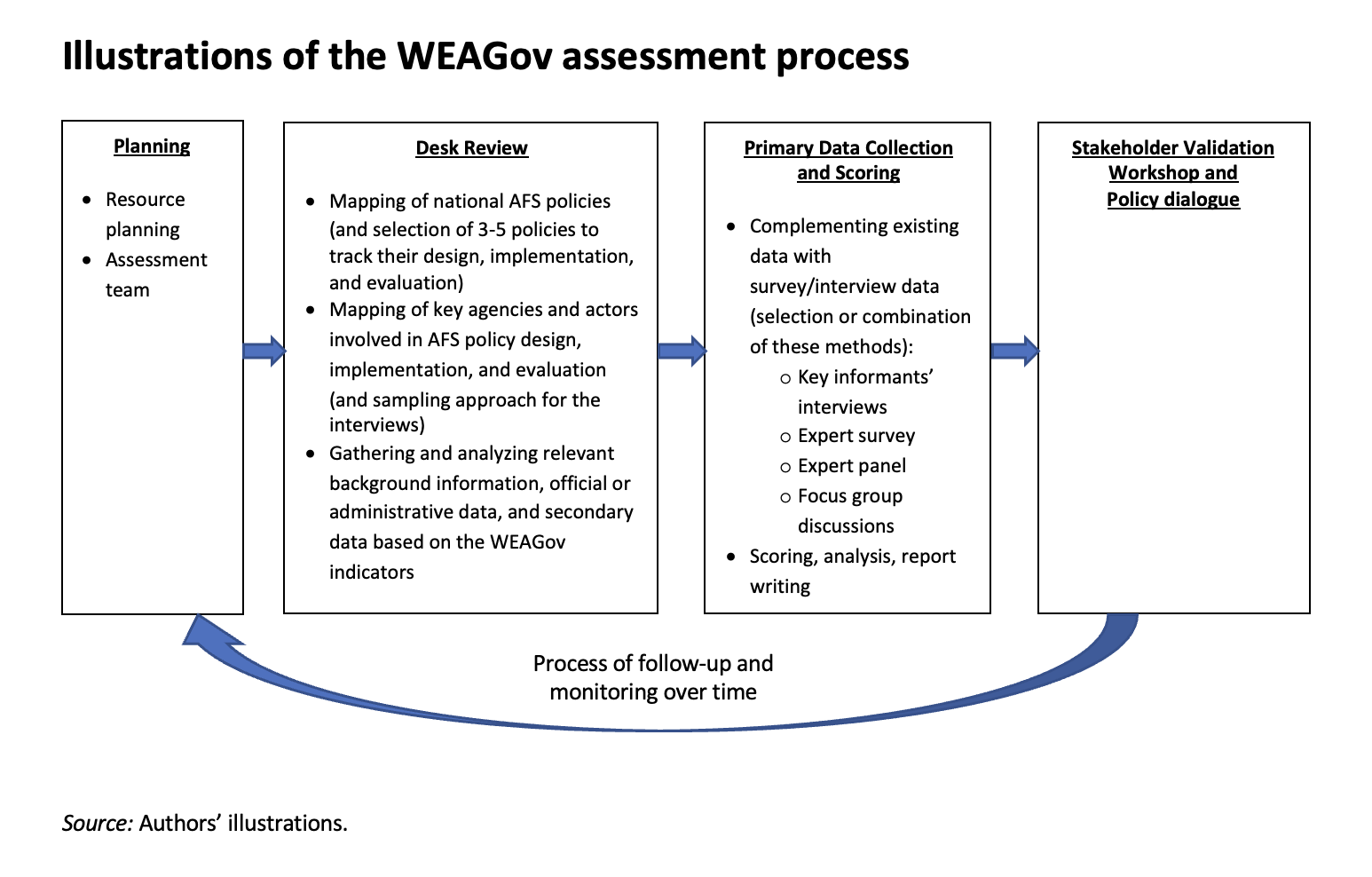
The final product will be a suite of tools that can apply the WEAGov framework across varying geographical and cultural contexts. We anticipate that the WEAGov project portfolio will help to answer critical questions about how to increase women’s empowerment in making the agrifood policy decisions that shape their lives and livelihoods in many places.
Catherine Ragasa is a Senior Research Fellow with IFPRI’s Development Strategy and Governance Division (DSGD); Jordan Kyle is a DSGD Research Fellow; Patricia Kristjanson and Sarah Eissler are independent consultants.
This work is part of the CGIAR Research Initiative on Gender Equality.




